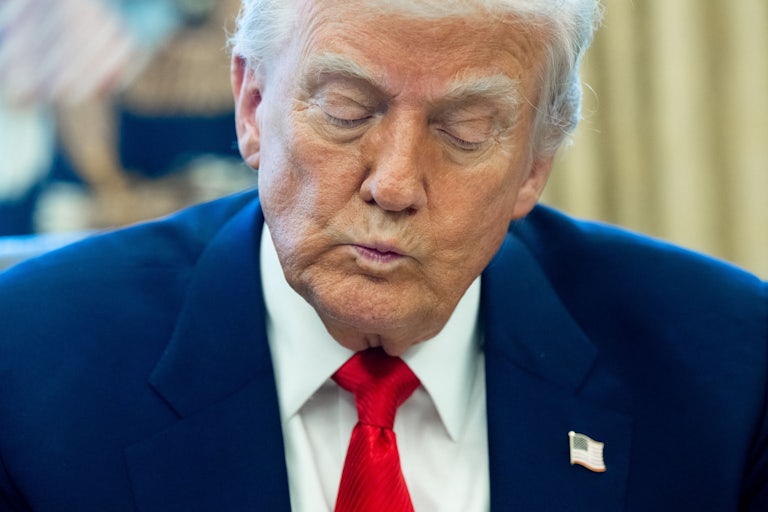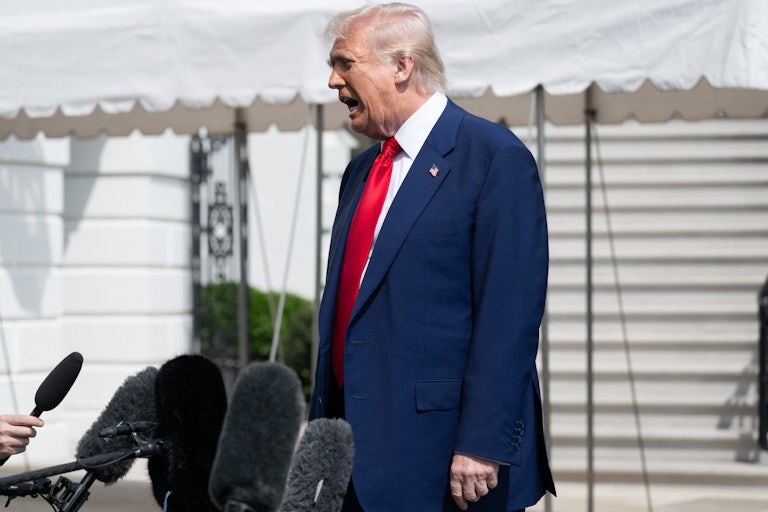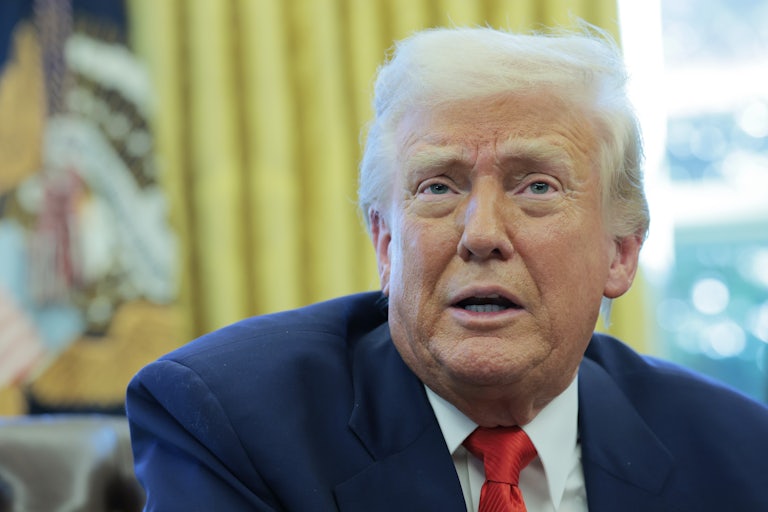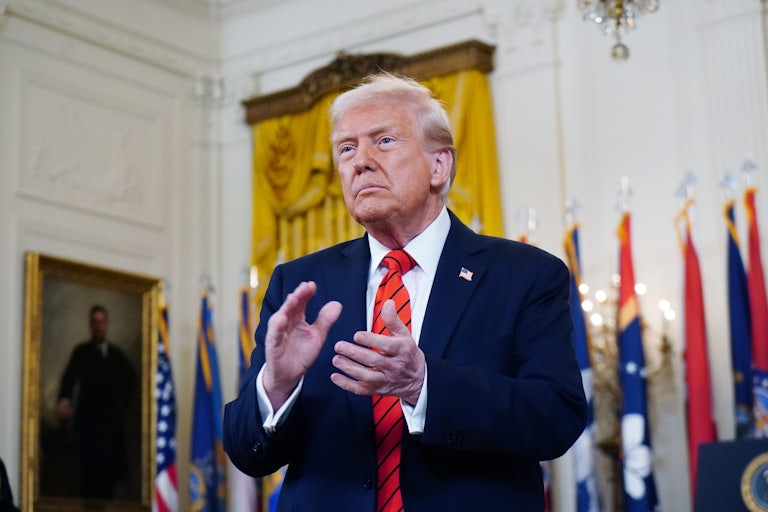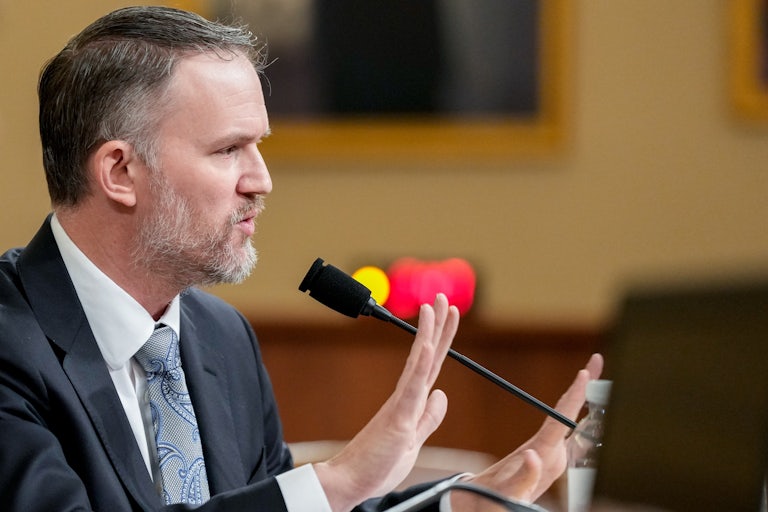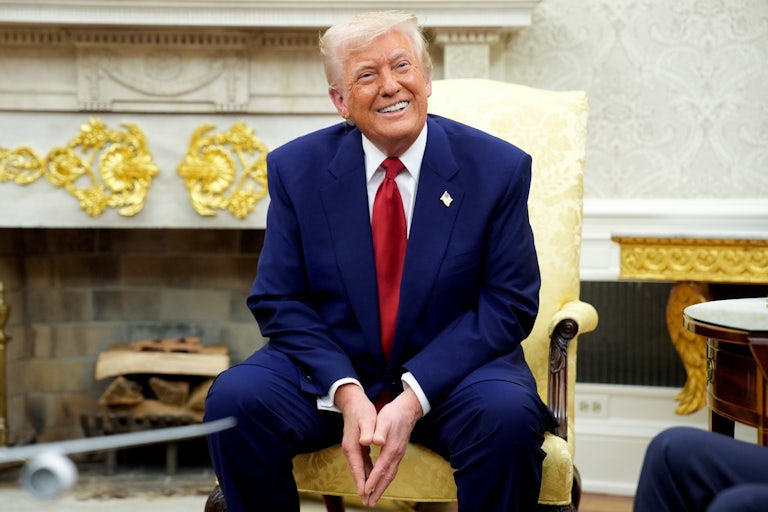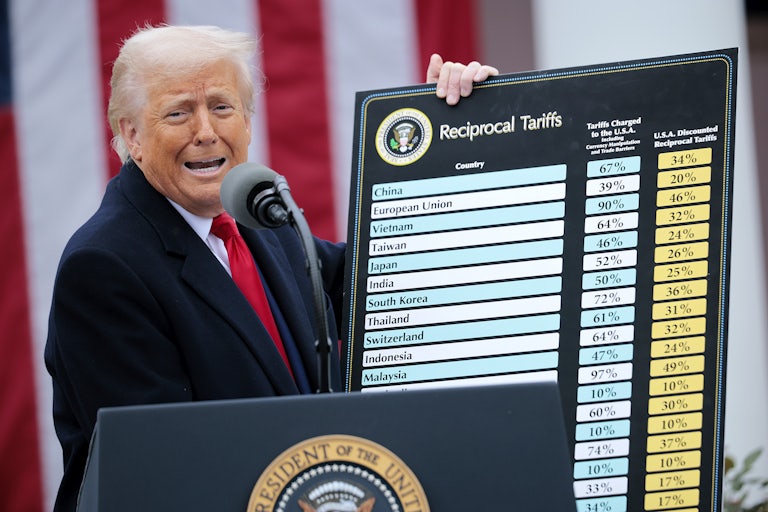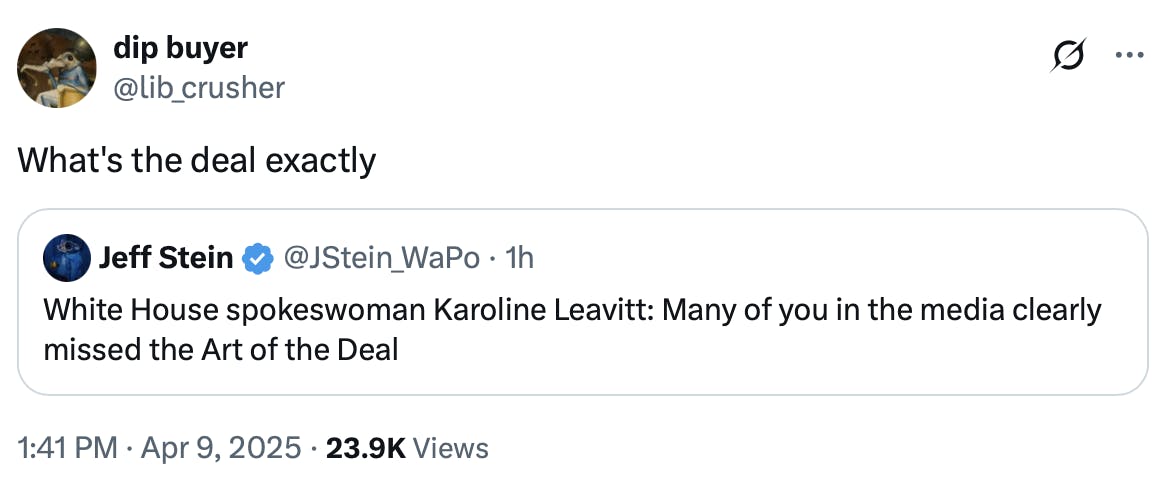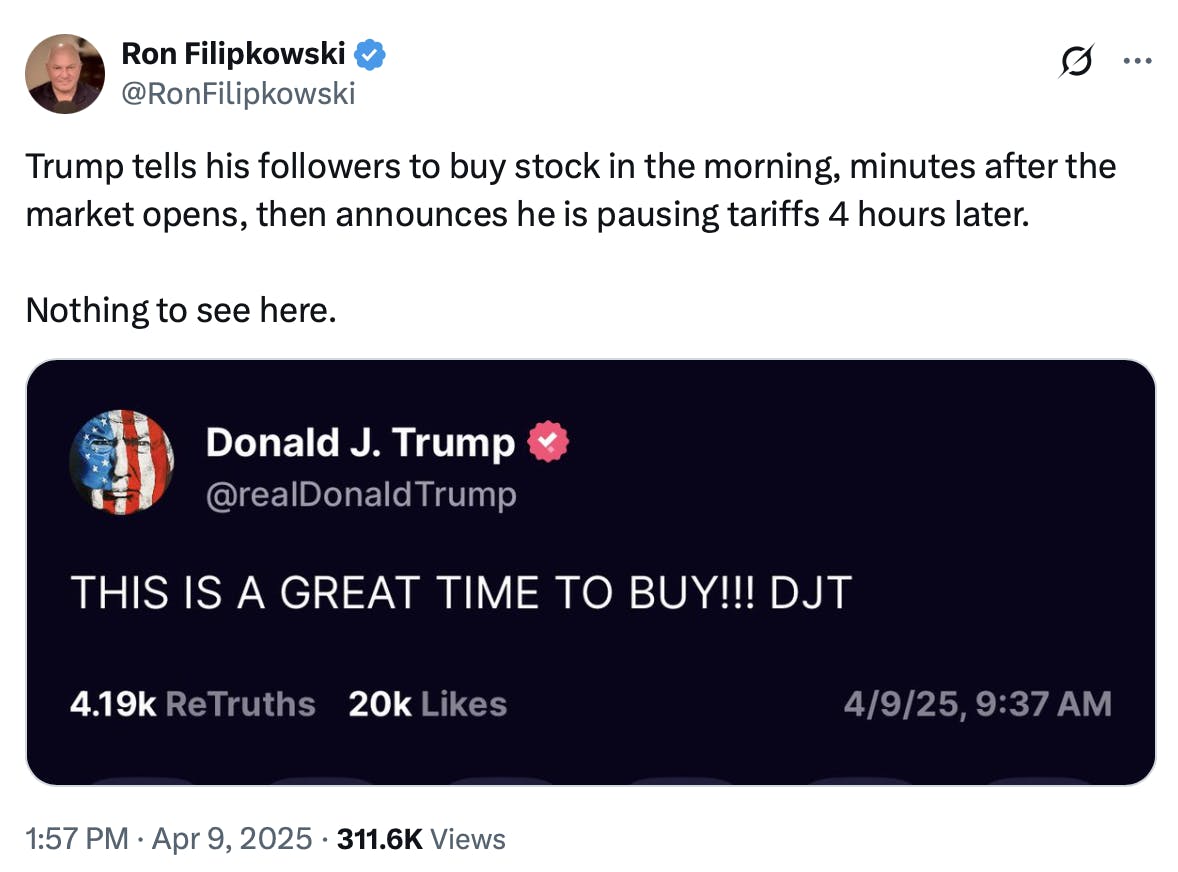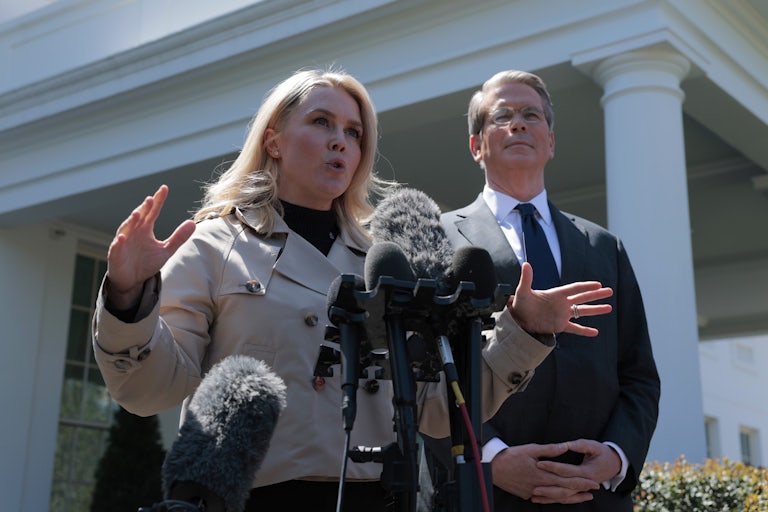Trump’s Dumbest Order Is Hiding His Most Dangerous Rule Change Yet
Donald Trump snuck an insidious change into an executive order on showerheads.
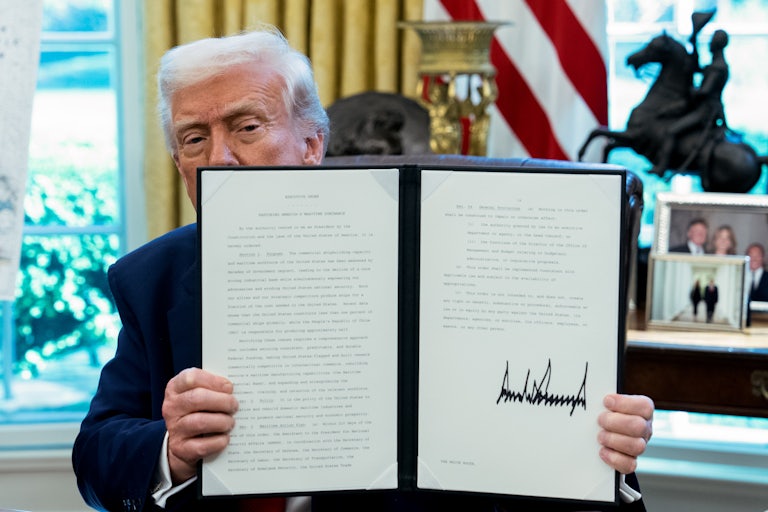
Buried within Donald Trump’s executive order “undoing the left’s war on water pressure” was a shady phrase to help the president fast-track his deregulatory crusade.
In a section of the order signed Wednesday repealing a 13,000-word regulation defining “showerhead,” Trump noted that notice and comment on the recission would not be accepted.
“Notice and comment is unnecessary because I am ordering the repeal,” the order stated.
Notice-and-comment rulemaking, as outlined by the Administrative Procedure Act, or APA, requires federal agencies to give the public time to comment after presenting a new rule. The agency must then consider all relevant, timely submitted comments before publishing the final rule.
But in his order, Trump implies that because he was the one rewriting the rule, the public would not be given the opportunity to comment, essentially fast-tracking any deregulation effort he pitches in the future.
Legal experts were quick to challenge Trump’s rulemaking rule change.
“This is so illegal. Just utterly, utterly unlawful,” wrote Aaron Reichlin-Melchick, a senior fellow at the American Immigration Council, in an X post Wednesday. “The President cannot overturn the commands of the APA by just declaring ‘because I said so.’”
“If President Biden could have written executive orders requiring rules just be written without comment, we’d have a whole helluva lot of new regulations on the books protecting consumers, workers, and the environment,” Todd Phillips, an assistant law professor at Robinson College of Business, wrote on X.
In a separate post, Phillips warned that rescissions would be challenged “so, so, so quickly. And in the D.C. Circuit.”
In a separate executive order signed Wednesday, Trump ordered U.S. agencies to get moving on rescinding “unlawful” regulations under several Supreme Court decisions, including Loper Bright Enterprises v. Raimondo, by once again skipping the process of notice and comment—this time claiming a “good cause” exception.
“In effectuating repeals of facially unlawful regulations, agency heads shall finalize rules without notice and comment, where doing so is consistent with the ‘good cause’ exception in the Administrative Procedure Act,” the order stated. “That exception allows agencies to dispense with notice-and-comment rulemaking when that process would be ‘impracticable, unnecessary, or contrary to the public interest.’”
In February, the Department of Health and Human Services issued a statement revoking its long-standing policy of using notice-and-comment rulemaking, which could potentially allow for expedited reforms to Medicaid programs.
